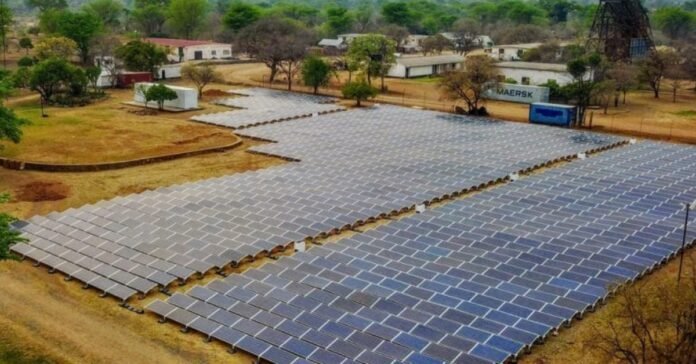Cameroon will sign a loan agreement with Unicredit Bank Austria AG. The financing requested by the country from this Austrian financial institution amounts to 6.7 million euros; i.e. 4.46 billion FCFA. This money will be used to finance the rural electrification project using solar photovoltaic systems and public lighting in nine regions of Cameroon.
The President of the Republic recently signed an enabling decree with the Faculty of Delegation, Alamine Ousmane Mey, the Minister of Economy, Planning and Regional Development (Minepat) signed with the aforementioned banking group a related loan agreement with guarantee from OeKb ( guarantee issued by Oesterreichische KontrollBank Aktiengeselschaft on behalf of and in the name of the Republic of Austria in accordance with the Austrian Export Promotion Act).
This project is announced in a context where Cameroon is multiplying initiatives related to the production of green energy. In fact, between 2016 and 2020, the state managed to electrify 350 localities thanks to the construction of mini-solar power plants, the construction of associated distribution networks and the installation of prepaid metering systems.
Financed with 53 billion FCFA by the government, whose share amounts to 7 billion FCFA and by China through EximBank China, up to 46 billion FCFA, this project is called “rural electrification campaign using the solar systemultimately aiming to electrify 1,000 locations throughout the country.
Digital transformation
Another decree of the President of the Republic signed on December 6, 2022, reauthorizes Alamine Ousmane Mey signed with the International Development Association (IDA), one of the three subsidiaries of the World Bank, a credit agreement in the amount of 84.1 million euros, equivalent to 55.165 billion FCFA. The government intends to use this money to finance the project to accelerate digital transformation in Cameroon (Patnuc).
Specifically, Patnuc, which is piloted by the Ministry of Posts and Telecommunications, the Ministry of Agriculture and Rural Development and the Ministry of Livestock, Fisheries and Animal Industry, aims on the one hand to establish new institutional, legal and legislative frameworks that promote growth in the digital sector , the strengthening of digital trust, the creation of digital platforms and the acquisition of relevant equipment for the safe and robust development of digital services in Cameroon. The second component focuses on stimulating the local market by facilitating Internet access and the integrated use of ICT in the country’s economic development structure.
Eco morning
